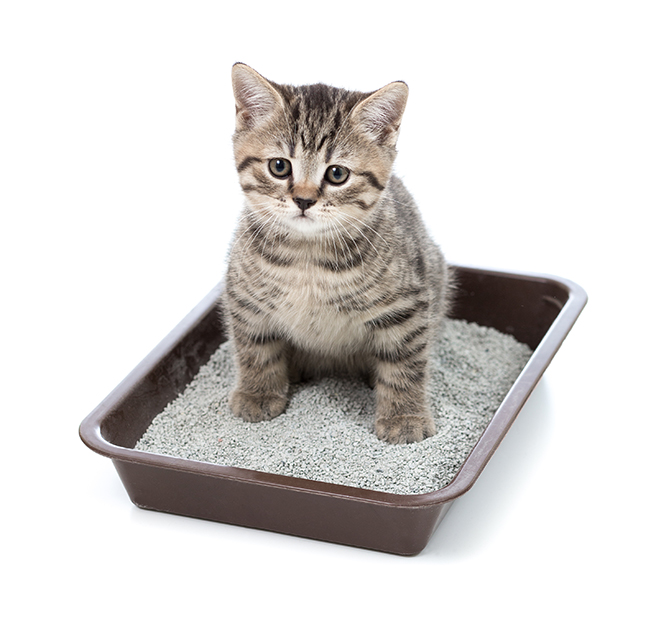What is it?
Your veterinarian may tell you that your cat has “Hematuria”, which can sound extremely frightening. To explain, Hematuria is when grossly noticeable blood, or red blood cells, are present in your cat’s urine. This is not a disease by itself, but is a sign of an underlying disorder manifesting, resulting in presence of blood in urine. If you notice a pinkish to reddish discoloration in your cat’s urine, your pet is experiencing Hematuria, and you should call your veterinarian right away. Blood in the urine is predominantly due to bleeding in the organs of the urinary system: kidneys, ureters, bladder, and urethra.
What causes it?
There can be a variety of causes leading to this condition with varying severity. The primary cause of blood in your cat’s urine is most likely a result of blood vessel damage, which can be a result of the following:
Trauma – the general damaging of blood vessels in the urinary system that may be sustained from car accidents, severe cat fights, assault to the animal, etc. Kidney, bladder and urethral stones can as well irritate and damage the luminal surface of the organs containing it. Stones usually arise from the kidneys and the urinary bladder and may be channeled downstream together with urine injuring the tubular structures like the ureters or the urethra causing trauma that leads to bleeding.
Inflammation – swelling of any urinary structure that may be brought by infection. Urinary tract infection may be part of this category which is common in cats. The process of inflammation, more so if severe, disrupts the continuity of blood vessels especially in the kidneys and the bladder. This may cause leaking of blood from these structures and voiding them with urine.
Blood clotting disorders – Clotting factors make sure that any case of bleeding in the body is controlled. Without this, bleeding may occur in any part of the body including the urinary organs. Von Willebrand disease is one example of a condition that disables the cat’s ability to control bleeding. This is congenital thus it can be observed among kittens. Lowered blood platelet levels may as well result in hematuria. This may be caused by disorder in the production of platelets in the body.
What to do?
Determination of hematuria in cats may be easy if your cats urine is predominantly reddish. However, if the degree of bleeding inside is minimal, and your cat is just producing a lightly pinkish urine, you may feel confused and just observe this is abnormal, and not take action. If hematuria is suspected, basic diagnostic kits for home use like CheckUp can be of great help for preliminary diagnosis. The test kit can determine the presence of blood in your cat’s urine if the condition is vague and blood is not evidently observable with the naked eye.
If hematuria is determined, have your cat checked by your trusted veterinarian. As mentioned, there could be various reasons why hematuria is observed thus it is important to have your cat’s illness diagnosed as soon as possible. Prognosis of the condition can only be achieved once the actual cause is identified. Most of the identified causes can be treated and a prompt treatment is always the best treatment.







